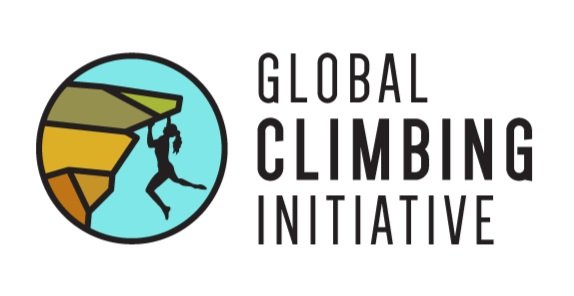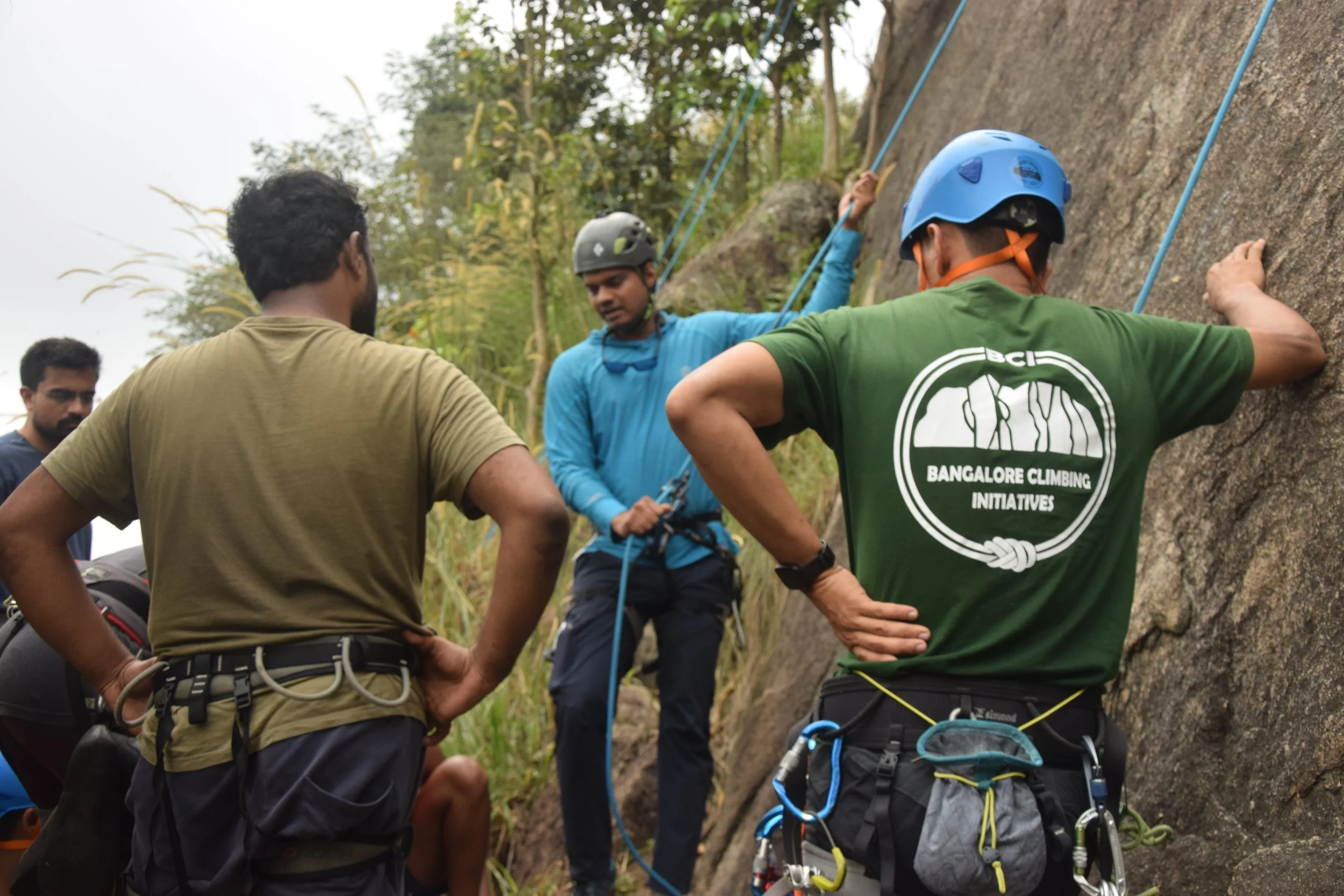GCI Social Impact Grant Recipient 2023
Project: Rope skills and first aid education for Indigenous honey harvesters in the Sathyamangalam Tiger Reserve, India
Photo by Tanmayi Gidh
What is the mission of Bangalore Climbing Initiatives?
To make the climbing spaces and culture around the city of Bangalore more inclusive, safe and knowledgeable for everyone, while respecting the natural heritage of the areas we climb in.
What is the history of your organization?
Bangalore Climbing Initiatives is a community-led organization established in 2014. Along with getting people interested in climbing, it's intention and focus has been on sharing technical, rope and rescue skills, maintaining old climbing routes, and exploring new avenues in climbing.
What are your current programs/areas of work?
BCI organizes a range of workshops and projects throughout the year including the Introduction to Climbing workshops, Anchoring workshops, Queer and Allies climbing workshop, group climbs, trad climbing workshops, TRG certification workshops in association with PCGI, quarterly rescue drills, route maintenance, etc.
The project with the honey harvesters in a forest in southern India is another initiative supported by BCI. The intention is to assist the indigenous honey harvesting communities in the region by sharing techniques and equipment that can make the entire endeavor safer/ more accessible. Climbing Cultures, as we're calling the project, has the capacity to add to our collective knowledge and understand the interconnectedness and overlaps in terms of skills. It's also an opportunity to get an insight into a new culture, exchange stories, and document traditional practices. It furthers the mission of being able to communicate rope and technical skills with everyone who is wanting to learn and may benefit from it and the intention of making the outdoors a safer space for not just climbers but all communities.
What positive impacts are you creating?
We have been consciously interacting with other communities who could benefit from technical and rope skills across their professions, and trying to understand better how they would traditionally go about these activities to facilitate a knowledge exchange. The capacity to add to our collective knowledge and understanding of interconnectedness and overlaps in terms of skills forms a crucial part of this endeavor.
What are your organization's goals/vision for the future?
With the Climbing Cultures project specifically, the idea is to learn from this pilot project and be able to adapt and implement it among more communities and regions in the coming years. The documentation is important from the perspective of capturing stories, cultures, ideas and traditions that in the indigenous communities in India are often passed down only orally. We hope to interact with many more people and communities to exchange knowledge and skills and grow and evolve as an organization in the process.

